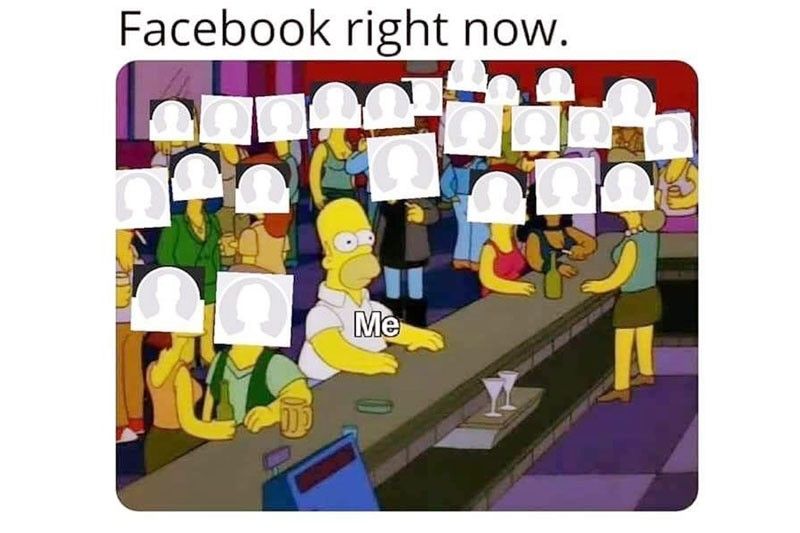A weekend of scammers and terror (bill)


Last Sunday was by far the weirdest day for me since the pandemic — and that’s saying a lot at a time when life as we knew it completely changed for everybody on the planet.
I woke up to a message from a fellow journalist telling me he found a Facebook account with my name (complete with my middle initial) and pictures. So I went to the impostor’s account and found that he had stolen my public pictures, used them as profile and cover photos, and edited them into his old posts.
While the account was “Tanya T. Lara,” his personalized Facebook URL was ReyJohn Dichoso. I don’t know anyone by that name and I’m certainly not what he pretended to be — a Bitcoin miner, investor and Forex trader.
Sunday got progressively weirder as many friends posted the same problem of blank, duplicate accounts — even friends with uncommon names.
Impersonation and fake accounts are nothing new; they’re as old as the social media platforms themselves.
On Twitter, fake accounts (or at least those with untraceable handles) are used to attack politicians and celebrities. On Instagram, there are countless “fan pages” with content taken from celebrities and other famous people’s pages or online sites — mostly harmless photos that tag the real people.
Facebook’s recent surge of fake accounts, peaking on Sunday, felt different. It felt orchestrated, coordinated and timed to happen when criticism of government was raging across all socmed platforms.
It was disturbing because the “victims” are not famous actors or business tycoons whom people can easily separate from impostors — these are ordinary people and, it seemed, vocal critics of government and protesters of the Anti-Terrorism Bill.
The University of the Philippines (UP), known for taking social issues from the classroom to the streets, was compelled to issue a statement noting that its faculty, students and alumni were being targeted, and encouraging them to report to the Philippine National Privacy Commission.
Also a hotbed for activism, the Polytechnic University of the Philippines (PUP) said its students were receiving threats of rape and murder from accounts bearing their own names!
Activists are not easily fazed. Anonymous fakers and scammers presumably working on troll farms should have known this. One student shot back, “Isn’t it worrying that the very same people supporting the terror bill are also the same ones who want to sow terror against those who dare to dissent?”
All this, at a time when there is so much disinformation about the Anti-Terrorism Bill, which could change our lives yet again, when there’s dissent and counter-dissent, contradicting pronouncements from the government on every issue — and an uncontrolled COVID-19 even before everyone is allowed to go out.
By Sunday evening, Justice Secretary Manado Guevarra said he would order an investigation into the surge of fake accounts.
For its part, Facebook said in an official statement: “We continue to review reported accounts and verify their authenticity. At this time, we have not seen evidence of the reported accounts engaging in coordinated or malicious activity focused on creating fake accounts. We will continue to validate the authenticity of these accounts and prioritize the removal of those that violate our policies.”
Facebook said it had not “seen evidence of a sudden surge in the creation of accounts over the weekend,” but there was a “spike in reports of impersonation and fake accounts.”
It added that it was prioritizing the removal of accounts that violated their policies. “We don’t allow people to misrepresent themselves on Facebook, use fake accounts, or engage in behaviors designed to enable other violations of our Community Standards.”
In my case, despite hundreds of friends reporting the fake account and an SOS to a friend’s friend from the local Facebook office, it took almost three days for it to be put on ‘‘hold.’’
“The majority of accounts reported since Sunday have not been recently active — meaning that they are not posting content, not making any friend requests and not sending any messages.”
My faker was hyper active. The impostor blocked me and friends who left comments on photos that it was a fake account, and his friends list was growing to almost 5,000.
So what is the solution to this huge problem on social media that engage in slander, scamming and phishing? The only way to drastically reduce these is for the platforms to require account holders to verify their identity by uploading an ID the way some sites do — but that would probably mean their users would be halved.
Just as you can’t fight City Hall, you can’t fight social media either. And that’s going to be on my Twitter.
* * *
Visit the author’s travel blog at www.findingmyway.net. Follow her on Twitter and Instagram @iamtanyalara.















